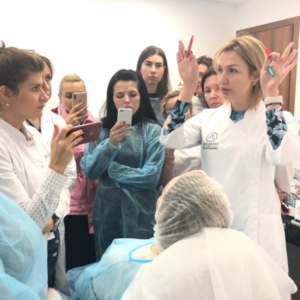This course delves into the psychological aspects of patient care in Aesthetic Medicine, with a focus on understanding body dysmorphia, self-esteem, and emotional well-being. It equips students with the skills to approach treatments ethically, empathetically, and professionally, aligning with the broader recognition of Aesthetic Medicine as a medical discipline.
Course Structure
01 Psychological Foundations in Aesthetic Medicine
Covers essential psychological concepts, including body image, self-esteem, and the emotional factors influencing patients’ decisions to seek aesthetic treatments.
02 Recognising Body Dysmorphic Disorder (BDD)
Learn how to identify signs of BDD and understand when to recommend psychological support rather than cosmetic procedures.
03 Empathy in Patient Consultations
Develop skills for conducting compassionate, patient-centered consultations that explore emotional well-being and self-perception.
04 Enhancing Patient Satisfaction
Focuses on strategies to ensure patients feel satisfied both physically and emotionally, addressing their holistic needs and enhancing overall outcomes.
05 Ethical Considerations in Aesthetic Practice
Covers the ethical responsibilities of aesthetic practitioners, including informed consent, setting realistic expectations, and maintaining professional boundaries.
06 Integrating Psychology into Treatment Planning
Learn to incorporate psychological insights into treatment plans, ensuring a balanced approach to patient care that prioritises both aesthetic and emotional outcomes.
Learning Outcomes
Upon completing this course, participants will understand the psychological factors influencing patient satisfaction and decision-making, develop skills to address psychological concerns, and enhance their patient consultations through effective communication to ensure well-being and treatment success.




